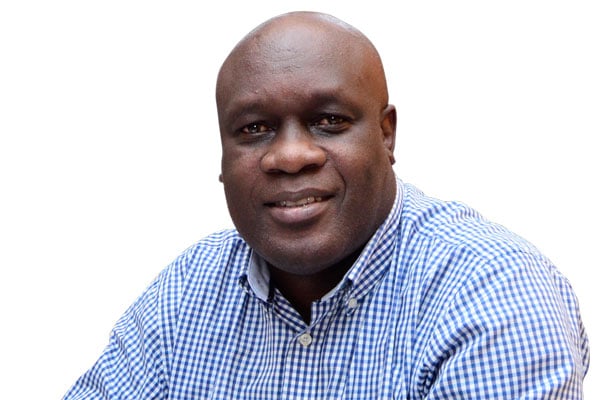
Comedian MC Mariachi was bashed for using TikTok content creator, Tenge Tenge, as a comedic foil. PHOTO/net
Tom Brady, an American former football quarterback who played in the National Football League for 23 seasons, two weeks ago, was the butt of several jokes. He endured guided insults about him and his personal life. However, Brady took it all on the chin as he smiled throughout “The Roast of Tom Brady” at the Kia Forum that was streamed live on Netflix.
When some people hear the word roast, they immediately cast their pleasant thoughts to a barbecue. Thereupon happy visions of meats, along with vegetables, come alive as the former are grilled on wood or charcoal fire in a stone-lined pit. However, roasts are not about rich tastes. In fact, they are often in poor taste.
What are roasts?
According to Google, “a roast is a form of comedy, originating in American humour, in which a specific individual, a guest of honour, is subjected to jokes at their expense, intended to amuse the event’s wider audience. The assumption is that the roastee can take the jokes in good humour and not as serious criticism or insult. The host of the event is called the roastmaster.”
It is humour leavened heavily with insult and ridicule. That is why many consider it offensive, but it was not always this way.
History of roasts
In 1949, the New York Friars Club held its first roast. The subject of that roast was French singer Maurice Chevalier. After a volley of insults hurled at him, he was probably compelled to scream Mercy instead of Merci.
These gatherings, trading barbs, which made participants sweat carbs, were private events. Although alive to some risqué remarks and off-colour jokes, all the exchanges were made in jest.
The format gained notoriety when “Dean Martin Celebrity Roasts” aired in the 1970s. Then televised events revealed the verbal pugilism of celebrities such as boxer Muhammad Ali, singer Dionne Warwick, Governor Ronald Reagan and many other celebrities who humorously insulted one another.
Behind the assumed rancour, though, these televised events were means by which celebrities were feted and toasted. More importantly, these events served to decompress the tension-filled public space and thereby add jollity to the popular discourse.
Ugandan roasts
Ugandans have never had a tradition of getting together to orally bash each other, and yet they continue to roast each other. Owing to our politics being used as a means of crude persuasion, we have witnessed the rise of what Norbert Mao, otherwise calls insult politics.
Accordingly, we have seen President Museveni mimic the late Abu Mayanja’s lisp while reportedly calling Maj John Kazoora a “puppy” and all past Ugandan leaders “pigs.” Not to be outdone, Museveni’s opponents such as Stella Nyanzi have been equally unsparing in their attacks on him.
“If I can get you to laugh with me,” said comedian John Cleese, “you like me better, which makes you more open to my ideas. And if I can persuade you to laugh at the particular point I make, by laughing at it you acknowledge the truth.”
Our politicians’ insults not only help them present their cases to the high court of public opinion. They frequently convey the sort of humour that deconstructs the illogical way politics is conducted in Uganda.
Ridicule, then, exposes how laughable much of our politics has become. It also leverages popular emotions and simplifies seemingly arcane notions to clear verbal images which summarize how we feel about those we disagree with.
A history of ridicule
Throughout world history, literary figures used ridicule against perceived injustices. Poet-playwright Aristophanes, for example, in 425 BC, lampooned and directed insults at the Athenian policy of the Peloponnesian War in The Acharnians.
He filled his plays with invective and ad hominem attacks as well as sexual humour in ways that would shock and awe those who heard him. It worked, fecundating at least 36 comedies, of which 11 are extant.
In Uganda, we also have a thriving tradition of insult humour. Ugandans often deploy this brand of humour in the cruelest manner. On Saturday, November 24, 2018, MV Templar started a journey that would take it to K-Palm Beach in Mpatta Sub-county, Mukono District. Tragically, the boat—with more than 100 people on board—capsized. More than 30 lives were lost.
However, Ugandans across social media were seen joking about “balancing the boat.” This was in reference to the MV Templar failing to balance before sinking. Such take-no-prisoners gallows humour is the stuff of roasts. Still, are Ugandans ready to formalise such misplaced levity?
Enter MC Mariachi
Comedian MC Mariachi, born Charles Kasozi, was severely criticised by the same social media for using autistic TikTok content creator Tenge Tenge as a comedic foil on Valentine’s Day Comedy Store UG show. MC Mariachi was accused of mocking Tenge Tenge when the latter joined him on stage for a performance.
“There is a reason I pulled back on doing comedy shows here, the audience demands this kind of filth. As much as we blame comedians for uncouth jokes, we should also point a finger at consumers,” Patrick “Salvado” Idringi posted on X the following day.
How far should a comedian go?
Salvado says the audience needs to draw the line at humour which swings below the belt. However, some seasoned comedians disagree.
“I think it is the duty of the comedian to find out where the line is drawn and cross it deliberately,” says American comedian George Carlin.
So, if Ugandans are ever to adopt roasts as a comedy format, they must not consider its limits. Instead, explore its possibilities in the context of its limits.




